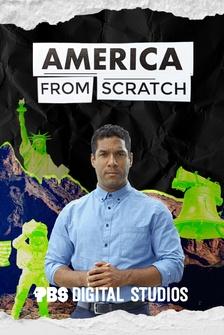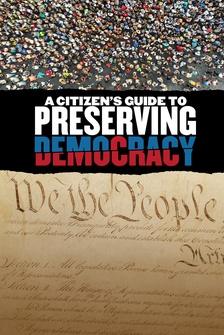Dan, I want to talk about Pennsylvania.
You spent a lot of time there.
Obviously, it's the key state.
We all believe it's the key state that neither candidate really has an extremely plausible pathway to victory without, Pennsylvania.
I have a specific question, which is how much of this discourse about political violence, about fascism, how much is that affecting the electorate?
And then the more general question has to do with what you've seen and felt on your most recent visit to Pennsylvania.
Let me just read something for people at home about your visit.
Quote, if Trump wins Pennsylvania, it will be because some of his potential supporters who see him as a deeply flawed are more concerned about immigration, inflation, and their negative perceptions of Harris than about Trump's threats of retribution, unstable behavior and effort to overturn the 2020 election.
If Harris wins, it will be because she has fully mobilized suburban women, prevented too many younger voters, particularly black men, from staying home, and rallied those who see a second Trump term as potentially destructive to the future of the country.
That's the overall the image that you got.
Give us a little more impressionistic view.
DAN BALZ: So, I was there for eight days.
I made stops in six different counties along the way.
To your first question, I would say that the discussion that we have had at the top of this program is not the discussion that most voters are having in Pennsylvania.
Certainly, there are some, you know, who are very anti-Trump, you know, who take all this in and it adds to the -- JEFFREY GOLDBERG: Those are high information.
DAN BALZ: They are very high information, yes.
And they're more liberal and they're solid Harris supporters.
I think that the broader takeaways, as I went through these different stops, was I heard more things that should be concerning to Harris and her campaign than I heard that should be concerning to Trump.
For example, a fellow who runs a tattoo parlor in Lock Haven, Pennsylvania, who said, I'm a lifelong Democrat, you know, I think Trump incited insurrection on January 6th, but he was never a big fan of Harris and said, I don't know if I'll even vote as a result of that.
I went to State College, where Trump is going to be this weekend, to talk to students.
And one of the more interesting conversations was with five members of the College Democrats, all working very hard on Harris' behalf, trying to organize everything they're doing.
But when we started to talk about her, Gaza came up and the degree to which they are very unhappy with her positioning on that.
They don't think she has been strong enough in breaking away from Biden on Israel.
I went to Pittsburgh to try to talk to, you know, some union workers to get a sense of the white working class.
There's a lot of union workers who are for Harris.
But as you get outside of Pittsburgh and some of those other counties, there's less support and there's more support for Trump.
In Philadelphia, there is great concern among the people who are trying to get young black voters out to vote, that when I was there, which would have been ten days ago, that the enthusiasm level is not where it needed to be.
It doesn't mean it won't be there by Election Day, but it wasn't.
It was only in Bucks County, which is one of the counties around Philadelphia, the key suburban counties, when I, you know, went to talk mostly with suburban women where I heard the enthusiasm for Harris and the passion against Trump.
So, I take away from that, that she has still room that she can grow and she could still get over the top but she has work left to do.
JEFFREY GOLDBERG: Not to put you on the spot, but let me put you on the spot.
The feeling you came out with is that it's Trump's to lose as a state.
DAN BALZ: Yes, that may be a slight overstatement.
I came out with the feeling that this is a very, very close election and that things at the margin will determine it and those are almost impossible to be able to tease out, you know, two or three weeks before the election, which is when I was there.
JEFFREY GOLDBERG: Jerusalem, I want to ask you a question, and for fairness, Jerusalem, just, you know, fair and balanced, and I want to jump off something that Dan said.
You've written a lot about racial depolarization as a sort of underlying phenomenon that may explain why so many black men and Latino men in particular are open to Trump.
Talk about that in the context of these swing states.
JERUSALEM DEMSAS: Sure, so, I mean, it's possible right now, given the polls that we're seeing, especially the New York Times/Siena poll, that Trump will perform better than any Republican presidential candidate has with black and Latino voters since enacting the Civil Rights Act in 1964.
So, that's remarkable.
I mean, at a macro level, when you're talking to political scientists, it's exciting for them to see depolarization happening because it means that, you know, both parties are now actually making bids for all people, regardless of their racial background.
Of course, it's concerning for someone like Harris, who is, is used to counting on that support maintaining.
And to put some numbers on it, right, we're talking about pretty significant changes that we're seeing in this polling.
Joe Biden in 2020 to Kamala Harris in 2024, we're seeing a drop in 14 points with black voters.
And when we look at Hispanic voters, you're seeing a drop in 7 points relative to their two campaigns.
Harris is still winning those two groups, more so with black voters and with Hispanic voters, as is common, but that's still significant.
And when you think about it, you know, I think a lot of what, you know, Dan was saying really resonates here, like other voters, black and Latino voters are thinking they have the same top issues.
They have issues about inflation, they care about immigration, and so that's really important.
And I often hear questions about Hispanic voters, like why aren't they more turned off by his rhetoric, why aren't they more turned off by the kind of language he's using about immigrants, and the New York Times Seattle poll has a really interesting finding, which is it asks Hispanic likely voters, do you think he's talking about you?
When he makes these sorts of comments about immigrants, is it about you?
Only 33 percent of Hispanic likely voters think he's talking about them at all.
They think it's like, oh, it's someone else.
It's another group of people that he's referencing.
It's illegal immigrants.
That's not me.
Or if it's them, it's people who aren't working hard.
So, I think that's really what's going on here.
JEFFREY GOLDBERG: Dana, in the minute or so that we have left, I want to ask you, because I don't think we've had you on since the most important debate in American history.
That could be discussed, I suppose, whether it's the most important debate or one of the most.
But I'm wondering it's been four months since you co-anchored, co-moderated the debate between Joe Biden, then the candidate, and Donald Trump, and I'm wondering, not to put you on the spot again, but what are your dominant impressions of the last four months, what's the most surprising thing about the way things went from that debate?
DANA BASH: All of it.
JEFFREY GOLDBERG: That's a great short answer at the end of a show, all of it.
DANA BASH: Yes.
JEFFREY GOLDBERG: All of it.
DANA BASH: All of it, really.
I mean, just from that moment when the debate began and I was sitting next to Jake and we were watching it and we were thinking, oh, what everybody else was thinking, wow, this is not what we expected and then everything that has happened since is unexpected, which is why we do what we do.
JEFFREY GOLDBERG: Which is why we do what we do.
Unfortunately, we have to stop doing what we're doing right now, but you can come back next week to see us do it again.
We do need to leave it there for now.
I want to thank our panelists for sharing their reporting and their observations.










